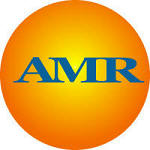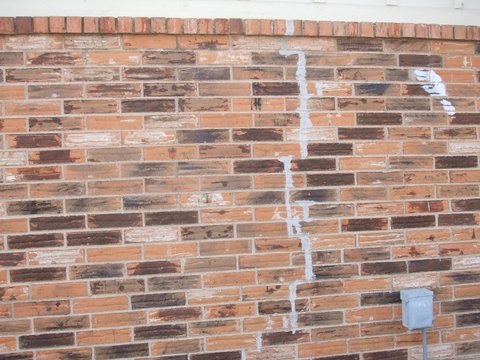

AMR Labs provides cement/mortar cube
testing.
Please call us to discuss how you need your mortars
tested. We can test mortar cube samples that you send in, or we can
mix your samples and provide an array of different tests on the
mortar and form cube samples, age them and test them at specific
aging times (7 days/14 days/28 days) let us know what kind of results you
are needing and we can customize a mortar analysis around your
needs.
We provide services across the U.S.
call:
(817) 366-8376
*AMR Labs*
1525 Corona Dr.
Granbury, TX 76048
Or email us:
mortarlab@gmail.com
AMR Labs is a mortar testing lab providing analysis of hardened mortar samples to determine the composition of existing mortar and create a matching mortar formula, and offers mortar color matching services also. Our lab testing services are often used to analyze and match old historic lime mortar for historic restoration and preservation, to determine mortar types and composition formulas, to determine if a quality mortar was used, or if the mortar used matches the recommended mortar materials for a project.
Mortar testing is the process of
analyzing samples of mortar, but
not all testing methods are the same or for the same purpose. There
are many testing methods provided by the astm for
testing hardened
mortar samples. With each individual testing method, there are
limitations to the accuracy of their results. This is especially
true of the astm c1324 mortar testing method.
The reason for the variance and inaccuracy of these types of
mortar analysis is they miss many useful details about the
mortar
that can be used in a scientific analysis of the
mortar to limit
variance and increase the accuracy of the mortar testing results.
How mortars are tested in our
mortar
analysis and what you get in your
mortar analysis testing report.
Mortar Analysis Testing
Our
mortar analysis uses many of the common
mortar analysis procedures including the
compressive strength testing of mortar,
acid digestion method of
mortar analysis, and examining the samples
through magnification, and collects these commonly unused facts
about the samples of mortar. These additional details are used and
calculated into our interpretations and results to logically
eliminate the range of variance in testing results. Through this, we
can more accurately identify the
mortar composition formula and
provide better results than any mortar testing lab using one
standard testing method for mortar analysis.
Through use of our
mortar analysis
testing method, we are able to
determine the
mortar composition and match mortar colors more
closely. As the color of mortar depends on its
composition, matching
mortar color also is dependant on the composition of mortar being
matched.
Testing Mortar Samples/Mortar Composition Matching
This is why mortar analysis and
testing are important in any
masonry repair or historic mortar
restoration.
Testing samples of hardened mortar is imperative to any masonry
mortar restoration, but especially in historic mortar repair.
Historic mortar tends to be much softer than the new mortars, and
ranges greatly in its compressive strength. This is due to the
bricks and stones used. Most of the bricks and tile were hand made
and sun baked and were much softer than the hard fired clay bricks
used today, and to prevent damage to the bricks, a softer mortar was
used.
In preserving and restoring these historic mortars and
historic buildings, it is important to test and
match the existing mortar and
its compressive strength to prevent damage to these
historic antique bricks that cannot be replaced.
Analysis & Matching Existing Mortar
However, analyzing and
testing mortar for matching is not limited
to historic masonry. It is just as important to
match the mortar of
today. Mismatched mortar can cause many common masonry problems.
Among these are chipping or spalling brick faces, loose bricks,
loose mortar, mortar popping loose or popping out,
mortar cracking
after repairs, mortar separation cracks,
crumbling mortar, and many
more. These are all resulting from new mortar not
matching the
existing mortar in the mortar joints. Mortars that are harder than
the old mortar tend to pop loose and damage brick faces because they
are not bonding to the existing mortar, and mortars that are softer
than the old mortar tend to crumble or deteriorate rapidly.
Matching Mortar Composition
Matching the composition of mortar is the
first step in matching mortar color for masonry repair.
When restoring or repairing masonry, take the time to
match the mortar type and composition. This will include the color and graded
particles of the sand which compose the majority of most mortars and
can change the color of mortar significantly. We also recommend
matching the mortar color pigments or aging as this will effect the
appearance of the repairs. Mismatched mortar color makes the masonry
repair look bad and there is no reason for the repairs to stand out.
We offer many types of mortar analysis and masonry testing including mortar color/composition matching. Some are listed below.
This mortar analysis analyzes the compressive strength of mortar, the mortar composition, mortar type, the sand gradation, and produces a mortar formula for matching the mortar composition and type of the existing mortar sample being tested or to analyze and compare two samples of mortar to determine if they are the same. This mortar analysis includes compressive strength testing, hydrochloric testing or acid digestion of mortar, magnified examination, weight loss, and sand analysis. A cleaned sample of the original sand is returned to you with the mortar testing report. This test is also used to determine if the old mortar is a historic mortar or rather contains historic lime.
In this mortar analysis, we analyze the composition of mortar samples, compressive strength, and color and produce a mortar formula for matching the existing mortar color and composition. This includes an analysis of the original sand.
This analysis is designed to test the crushing pressure or compressive strength of mortar, brick, stone, block, or tile, and is used to analyze and determine if the mortar used is a good mortar for the masonry units or to determine what type of mortar should be used with the units. A good mortar is slightly softer than the brick or stone it is used to install to prevent damage to the masonry unit.
There is no reason for
masonry repair to look like this.
Get the mortar tested and properly matched. View our
photos to see what this
project looks like after our mortar testing and
mortar matching
services.

